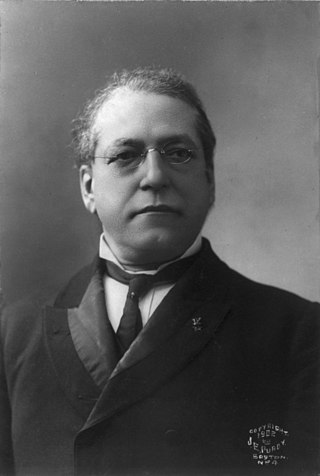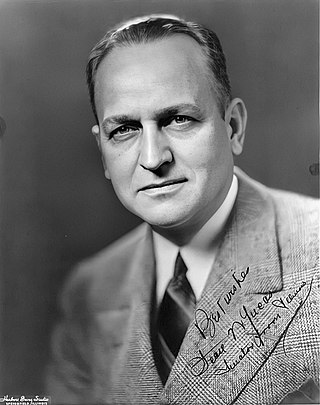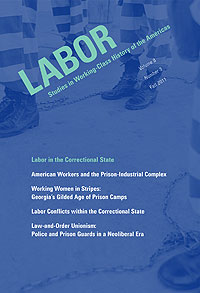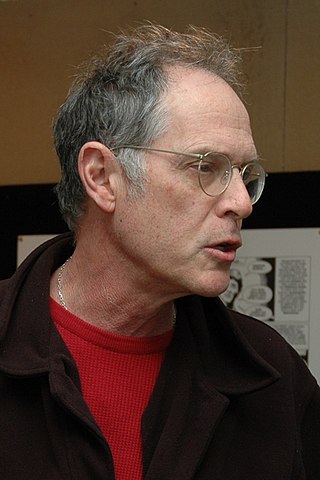
The Knights of Labor, officially the Noble and Holy Order of the Knights of Labor, was an American labor federation that was active in the late 19th century, especially the 1880s. It operated in the United States as well in Canada, and had chapters also in Great Britain and Australia. Its most important leader was Terence V. Powderly. The Knights of Labor promoted the social and cultural uplift of the worker, and demanded the eight-hour day. In some cases it acted as a labor union, negotiating with employers, but it was never well organized or funded. It was notable in its ambition to organize across lines of gender and race and in the inclusion of both skilled and unskilled labor. After a rapid expansion in the mid-1880s, it suddenly lost its new members and became a small operation again. The Knights of Labor had served, however, as the first mass organization of the white working class of the United States.

The Pullman Strike was two interrelated strikes in 1894 that shaped national labor policy in the United States during a period of deep economic depression. First came a strike by the American Railway Union (ARU) against the Pullman factory in Chicago in spring 1894. When it failed, the ARU launched a national boycott against all trains that carried Pullman passenger cars. The nationwide railroad boycott that lasted from May 11 to July 20, 1894 was a turning point for US labor law. It pitted the American Railway Union (ARU) against the Pullman Company, the main railroads, the main labor unions, and the federal government of the United States under President Grover Cleveland. The strike and boycott shut down much of the nation's freight and passenger traffic west of Detroit, Michigan. The conflict began in Chicago, on May 11 when nearly 4,000 factory employees of the Pullman Company began a wildcat strike in response to recent reductions in wages. Most of the factory workers who built Pullman cars lived in the "company town" of Pullman just outside of Chicago. Jennie Curtis who lived in Pullman was president of seamstress union ARU LOCAL 269 gave a speech at the ARU convention urging people to strike. It was designed as a model community by its namesake founder and owner George Pullman.

Samuel Gompers was a British-born American cigar maker, labor union leader and a key figure in American labor history. Gompers founded the American Federation of Labor (AFL) and served as the organization's president from 1886 to 1894, and from 1895 until his death in 1924. He promoted harmony among the different craft unions that comprised the AFL, trying to minimize jurisdictional battles. He promoted thorough organization and collective bargaining in order to secure shorter hours and higher wages, which he considered the essential first steps to emancipating labor.

Scott Wike Lucas was an American attorney and politician. A member of the Democratic Party, he represented Illinois in the U.S. House of Representatives (1935–1939) and the U.S. Senate (1939–1951). He was the Senate Majority Leader from 1949 to 1951.

The economy of Illinois is the fifth largest by GDP in the United States and one of the most diversified economies in the world. Fueled by the economy of Chicago, the Chicago metropolitan area is home to many of the United States' largest companies, including Abbott Laboratories, AbbVie Inc., Allstate, Baxter International, Conagra, Crate and Barrel, Kraft Heinz, McDonald's, CNH Industrial, GE Healthcare, Aon PLC, Willis Towers Watson, Mondelez International, Motorola, United Airlines, US Foods, Walgreens, and more. The Chicago area is a global financial center and headquarters a wide variety of financial institutions including Citadel LLC, CNA Financial, Discover Financial Services, Morningstar, Inc., Nuveen, and more. Chicago is also home to the largest futures exchange in the world, the Chicago Mercantile Exchange.
The School of Labor and Employment Relations (LER) is a graduate school at the University of Illinois at Urbana–Champaign. Founded in 1946, the school is the second oldest labor and industrial relations school in the nation. Students at Illinois can earn a Master of Human Resources and Industrial Relations or a PhD in Industrial Relations. The school focuses on the MHRIR program. Until August 2008, LER was known as the Institute of Labor and Industrial Relations. In spring, 2015, the master's program expanded to accommodate an online program targeted to working professionals.
United Association for Labor Education (UALE) is an international association for post-secondary, community, union and associated labor educators based in Chicago, Illinois.
The Comparative Labor Law and Policy Journal is a law journal which publishes articles in the field of comparative and transnational labor and employment law.

Labor: Studies in Working-Class History is a quarterly peer-reviewed academic journal covering the history of the labor movement in the United States, including non-union agricultural work, slavery, unpaid and domestic labor, informal employment, and other topics. While the primary focus is on the United States, the journal also covers labor movements in North and South America as well as transnational comparisons that shed light on the American labor movement. It is the official journal of the Labor and Working-Class History Association and is published by Duke University Press. The editor-in-chief is Julie Greene who took over the role when the founding editor, Leon Fink, stepped down in July 2023.
Melvyn Dubofsky is professor emeritus of history and sociology, and a well-known labor historian. He is Bartle Distinguished Professor of History and Sociology at the Binghamton University.
The Labor and Working-Class History Association (LAWCHA) is a non-profit association of academics, educators, students, and labor movement and other activists that promotes research into and publication of materials on the history of the labor movement in North and South America. Its current president is James Gregory, professor of history at University of Washington.
Leon Fink is a Distinguished Professor in the Department of History at the University of Illinois at Chicago. A historian, his research and writing focuses on labor unions in the United States, immigration and the nature of work He is the founding editor of Labor: Studies in Working-Class History, the premier journal of labor history in the United States.

Ruth Milkman is an American sociologist of labor and labor movements. She is Distinguished Professor of Sociology at the CUNY Graduate Center and the director of research at CUNY School of Labor and Urban Studies. Between 1988 and 2009 Milkman taught at the University of California, Los Angeles, where she directed the UCLA Institute for Research on Labor and Employment.

Archie Green was an American folklorist specializing in laborlore and American folk music. Devoted to understanding vernacular culture, he gathered and commented upon the speech, stories, songs, emblems, rituals, art, artifacts, memorials, and landmarks which constitute laborlore. He is credited with winning Congressional support for passage of the American Folklife Preservation Act of 1976, which established the American Folklife Center in the Library of Congress.
Richard Schneirov is a professor of history and noted labor historian at Indiana State University.

Paul Merlyn Buhle is an American historian, who is (retired) Senior Lecturer at Brown University, author or editor of 35 volumes, including histories of radicalism in the United States and the Caribbean, studies of popular culture, and a series of nonfiction comic art volumes. He is the authorized biographer of C. L. R. James.
Evelyn Seiko Nakano Glenn is a professor at the University of California, Berkeley. In addition to her teaching and research responsibilities, she served as founding director of the university's Center for Race and Gender (CRG), a leading U.S. academic center for the study of intersectionality among gender, race and class social groups and institutions. In June 2008, Glenn was elected president of the 15,000-member American Sociological Association. She served as president-elect during the 2008–2009 academic year, assumed her presidency at the annual ASA national convention in San Francisco in August 2009, served as president of the association during the 2009–2010 year, and continued to serve on the ASA governing council as past-president until August 2011. Her presidential address, given at the 2010 meetings in Atlanta, was entitled "Constructing Citizenship: Exclusion, Subordination, and Resistance", and was printed as the lead article in the American Sociological Review.
Adolf Fox Sturmthal was a U.S. political scientist, sociologist and journalist of Austrian birth who specialised in labour studies and international relations.
Joan Livingstone is an American contemporary artist, educator, curator, and author based in Chicago. She creates sculptural objects, installations, prints, and collages that reference the human body and bodily experience.

The 1920 Illinois lieutenant gubernatorial election was held on November 2, 1920. It saw Republican nominee Fred E. Sterling win a landslide victory.










